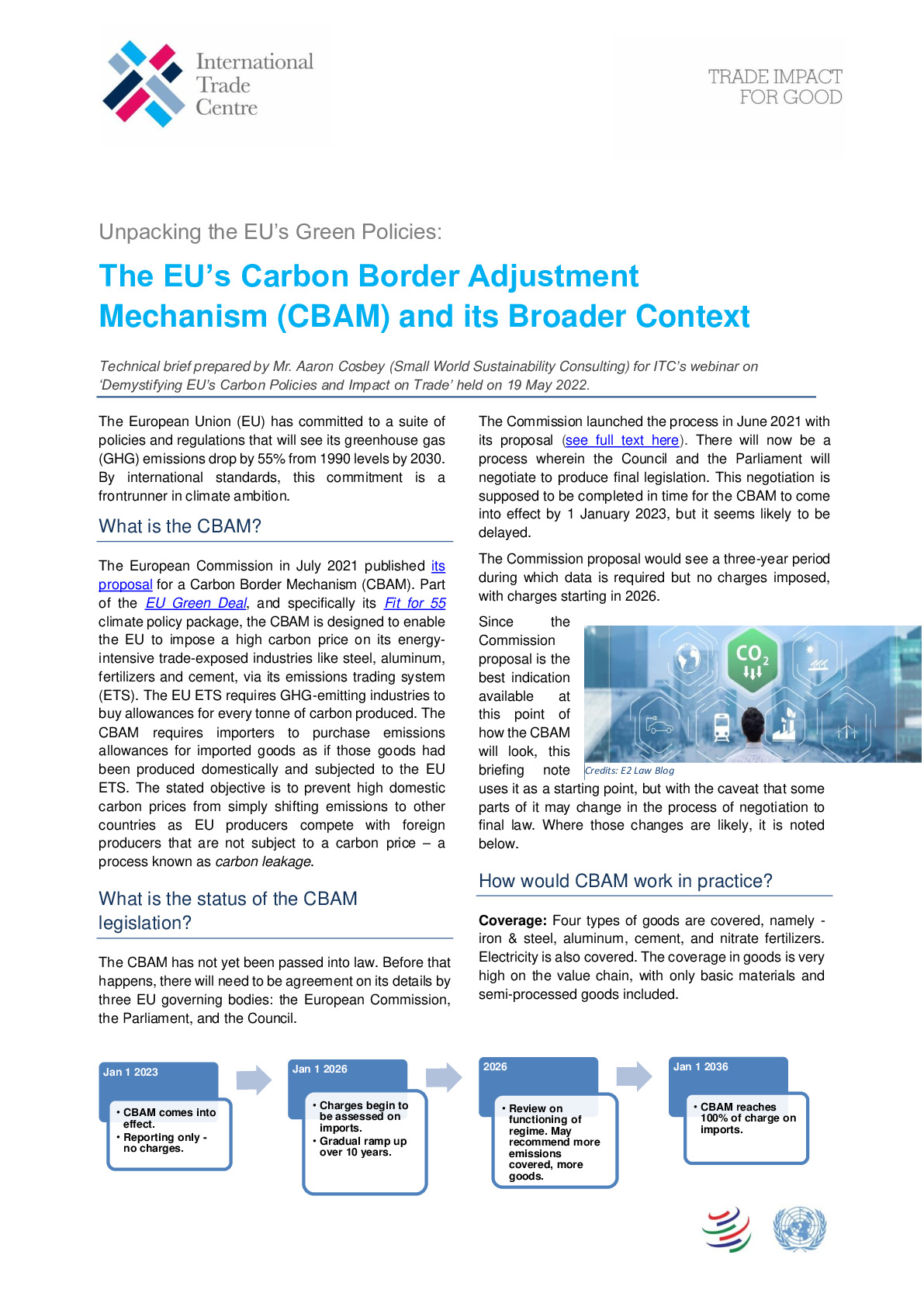Demystifying the EU's Carbon Policies and Impact on Trade
Overview
The International Trade Centre (ITC) hosted a webinar on ‘Demystifying the EU’s carbon policies and impact on trade' on Thursday, 19 May from 14H00 - 16H00 CET. This was the second webinar in ITC's ‘Unpacking the EU’s Green Initiatives' webinar series.
In today’s increasingly complex, fast-paced and highly regulated world, the ability of countries, producers, traders and service providers to access markets and take advantage of the opportunities provided in trade agreements is premised on the ability to be aware of and adapt to environmental rules and requirements. For developing countries, however, such environmental regulations are often perceived as obstacles to their business. Accordingly, targeted support is required for developing countries, particularly SMEs, to understand and comply with these regulations, ensure that it does not become a barrier to trade, and enable businesses to leverage opportunities arising from green and sustainable trade.
The EU has been pioneering efforts to facilitate this transition to green and sustainable trade through a host of regulatory initiatives. ITC's first webinar in this series introduced the various EU regulatory initiatives underway to facilitate the green transition covering the measures to achieve carbon neutrality, develop sustainable supply chains, and strengthen trade in sustainable products, among others. In the second webinar, ITC will delve into the specific EU policies and regulatory initiatives being implemented to achieve the carbon neutrality through trade.
The European Green Deal sets out a framework for Europe to achieve net zero greenhouse gas emissions by 2050 (in other words – carbon neutrality). An intermediate target has been set to reduce GHG by at least 55% by 2030 compared to 1990 levels, and the EU’s ‘Fit for 55’ package was introduced as a series of interconnected proposals to achieve this goal. Rules are being created to achieve these goals, including through mechanisms to reduce emissions, investments in green technologies, and trade. Regulatory initiatives with direct trade implications - such as the Carbon Border Adjustment Mechanism (CBAM), the EU Renewable Energy Directive, and the revision of the Emissions Trading System, are all examples of measures proposed by the European Commission in this context. These carbon regulatory measures may pose market access risks for exporting SMEs, but also present business opportunities for companies in identifying and reducing carbon footprints now to gain secure, preferential trade access later. Overcoming these risks and leveraging business opportunities, however, requires significant actions by SMEs to be able to assess and reduce their carbon footprints, and demonstrate their carbon credentials in a manner compliant with the prospective EU regulations.
At this webinar, ITC presented the EU’s carbon related regulations in the context of its application in the trade policy framework, and domestic measures required by developing countries to create a conducive framework for businesses, particularly SMEs, to align with carbon related regulations and become more competitive players in the market.
The presentations delivered at the webinar are attached.
Programme
Paolo Vergano

Aaron Cosbey

Sarah Mohan

Speakers
Victoria Tuomisto

Paolo Vergano

Aaron Cosbey

Sarah Mohan






